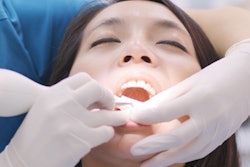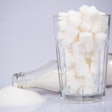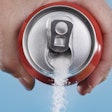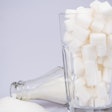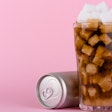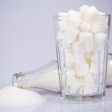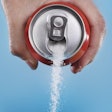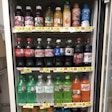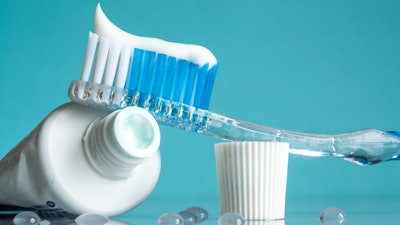
A zero-calorie sugar substitute commonly found in toothpaste and chewing gum may be associated with a heightened risk of cardiovascular events like heart attacks and strokes, according to a press release dated June 6 from the Cleveland Clinic.
In the future, more studies should be conducted to examine the cardiovascular safety of xylitol, a natural sugar alcohol found in plants but which is considered an artificial sweetener because it contains no sugar, according to the large study published on June 6 in the European Heart Journal.
"Xylitol is associated with incident MACE (major adverse cardiovascular event) risk," wrote the authors, led by Dr. Stanley Hazen, PhD, of the Cleveland Clinic Lerner Research Institute and the Preventive Cardiology in the Heart, Vascular, and Thoracic Institute in Ohio.
Xylitol is a common ingredient in sugar-free candy, gum, and oral care products like toothpaste. Over the last decade, xylitol and other sugar substitutes have gained in popularity and have been promoted as healthy alternatives for those with obesity and diabetes.
To explore factors that contribute to residual cardiovascular risks, an analysis of more than 3,000 patients in the U.S. and Europe were analyzed. Untargeted metabolomics studies were conducted on patients undergoing heart evaluation, and liquid chromatography tandem mass spectrometry analyses were done on an independent, nonoverlapping cohort. Human blood and animal model studies were studied to investigate the effects of the sugar substitute on platelet responsiveness and blood clot formation in vivo, according to the study.
High levels of circulating xylitol were linked to an elevated three-year risk of cardiovascular events. Additionally, a third of patients with the largest amount of xylitol in their plasma were more likely to have a cardiovascular event, according to the release.
Furthermore, xylitol caused platelets to clot and heightened the risk of thrombosis. Also, it was found that the platelet activity of patients who drank a xylitol-sweetened drink had a clotting ability that notably rose immediately compared to those who drank a glucose-sweetened drink, according to the authors.
The study had several limitations, including that clinical observation studies show correlation and not causation, according to the release. The study, which was supported by the U.S. National Institutes of Health and the Office of Dietary Supplements, highlights the need to further investigate sugar alcohols and artificial sweeteners.
"It does not mean throw out your toothpaste if it has xylitol in it, but we should be aware that consumption of a product containing high levels could increase the risk of blood clot related events," Hazen said in the release.





